Sourcing season in Costa Rica is in full swing, and our Central American sourcing office is filled with fresh samples from our Costa Rican producer partners. We’ve already enjoyed plenty of Washed, Honey, Natural, and unique fermentation lots that are cupping well, and we can’t wait to get these coffees to you. Check out updates below from our team as they visited producers in Costa Rica earlier this year!
UK Account Manager, Ed Anderson Brown (left) with producer Diego Robelo of Aquiares Estate in Turrialba, Costa Rica.
Ed Anderson Brown
Account Manager, UK
Costa Rica is famous for its innovation, bringing processing and milling into the small farm, allowing a better impact value in smallholder production as well as in house quality controls. Most importantly, it allowed the honey process to come into fruition with each producer having their own style of processing controls, resulting in variations of honey colours that we know today.
While the honey process remains strong, innovation is still striving, this time in new ways. We are seeing an adoption of modern varieties that can have stronger production qualities in the face of a changing climate. Producers are also taking influence from Panama and Colombia, by working with isolated strains of bacteria to have more control in their fermentation as seen by Tributos del Ota.
Lastly, and always present in Costa Rica, is the love for flourishing biodiversity. Coffee trees are interspersed between many different types of native trees as well as being surrounded by natural forest housing a bounty of diversity from toucans and pumas to fungus and insects.
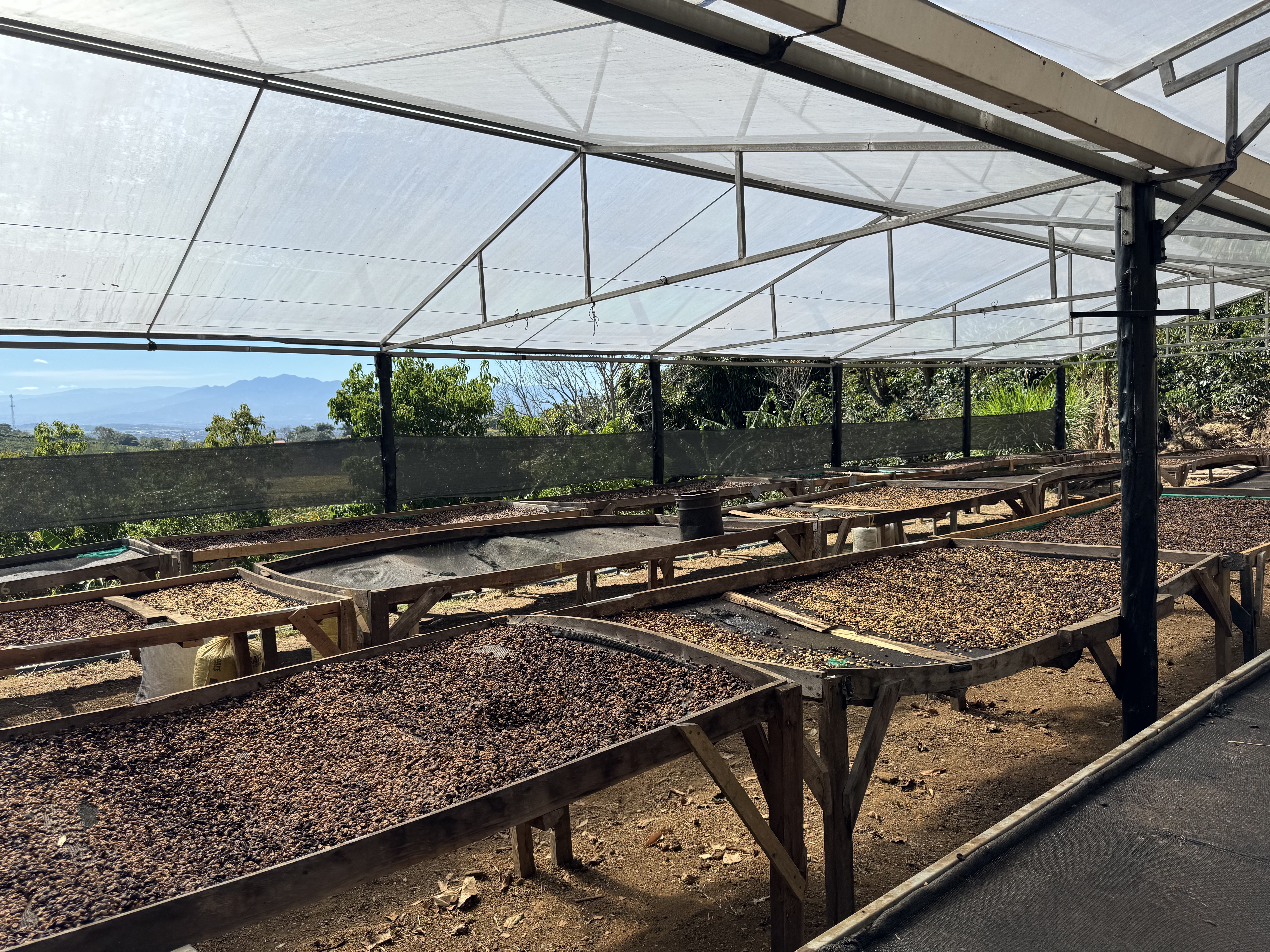
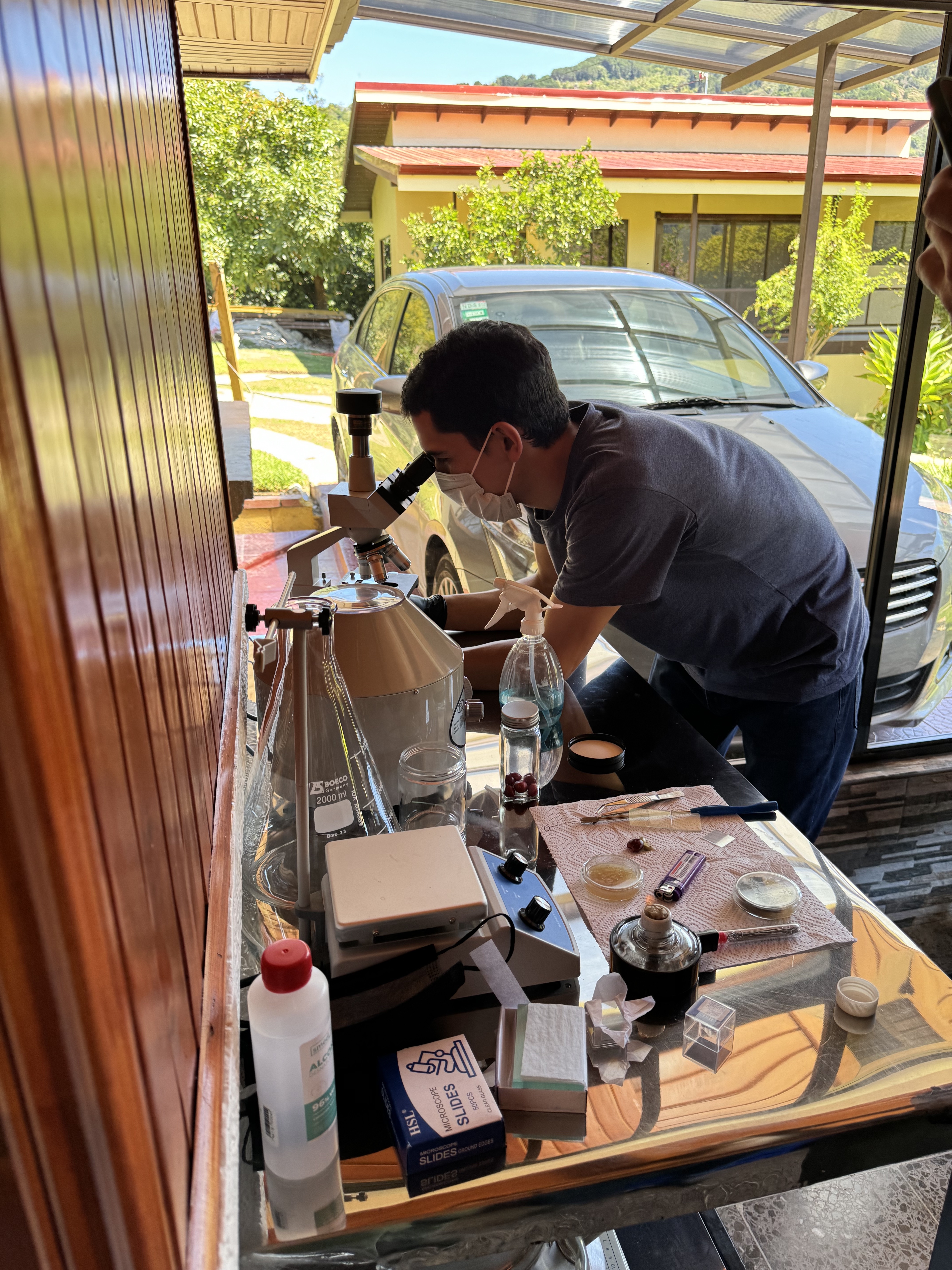
The Lactobacillius lab at Tributos del Ota in Tarrazu, Costa Rica
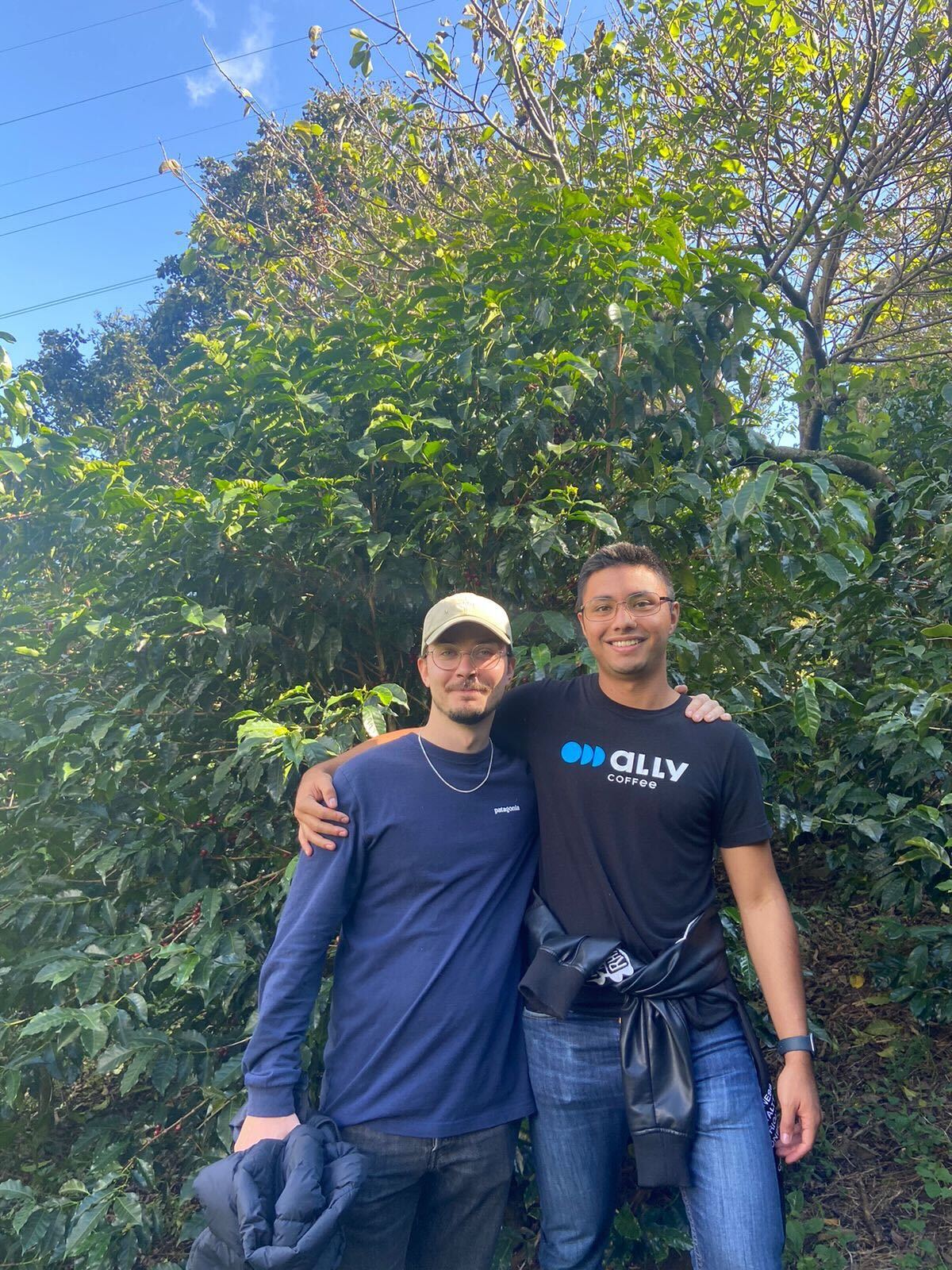
Albin Frid
Account Manager, Europe
My mid-February trip to Costa Rica was my first ever origin trip, visiting Roble Negro, Juanachute, and Aquiares, which is three of the farms we've been working with for numerous years. Our office in the heart of Tarrazú, a small town called San Pablo, acts as a centre point for the coffee community in the region which is home to 700 different micromills. It’s very clear how positive this space is, not just for Ally, but for the producers who can drop in to share a coffee, some conversations, and exchange knowledge. Over the days I spent there, we cupped over 30 different lots of a range of processing, and even though this year's harvest was a difficult one for many producers, due to lack of labor and poor weather, I am still excited by the quality and the coffees we will bring to clients.
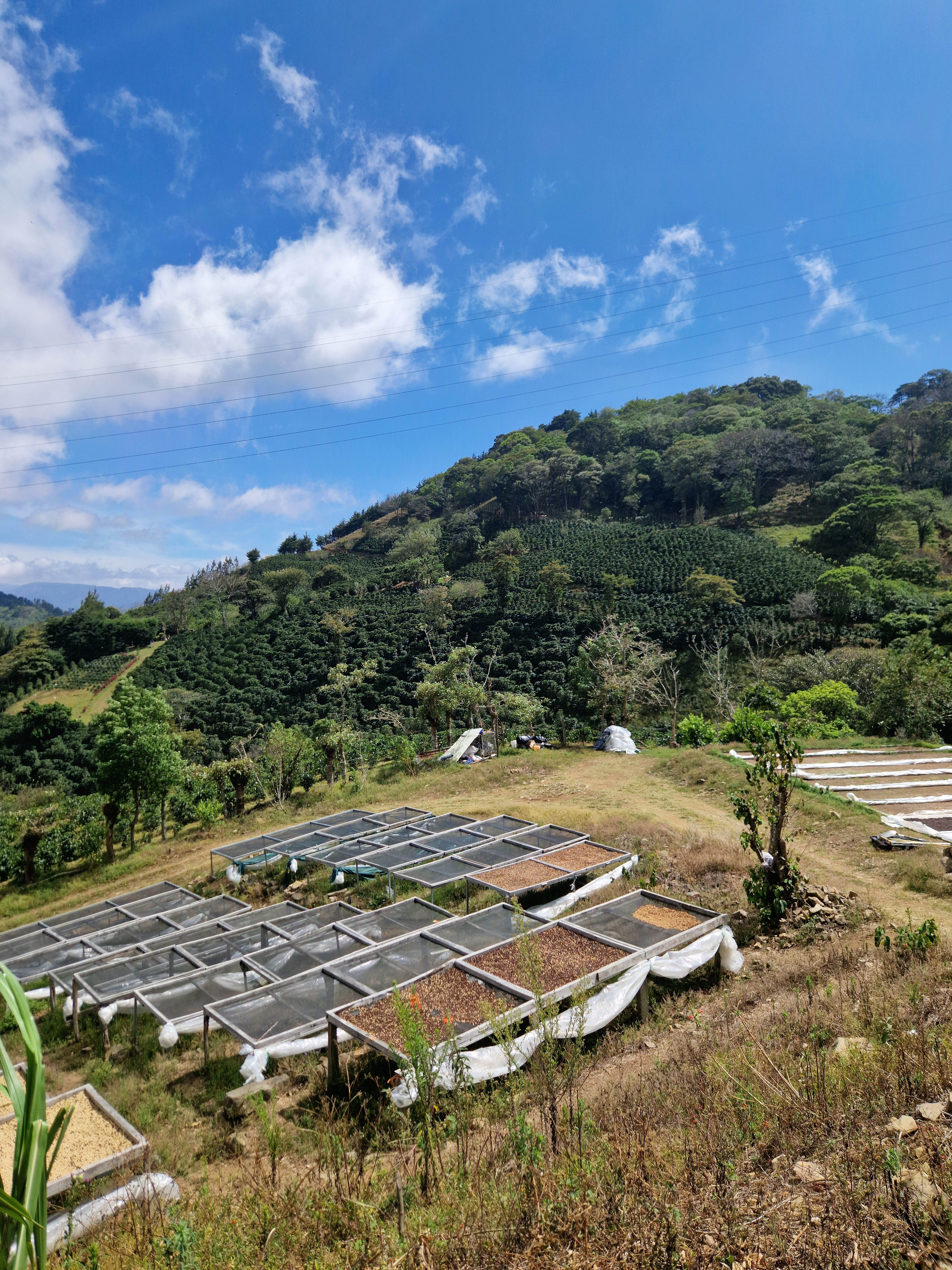
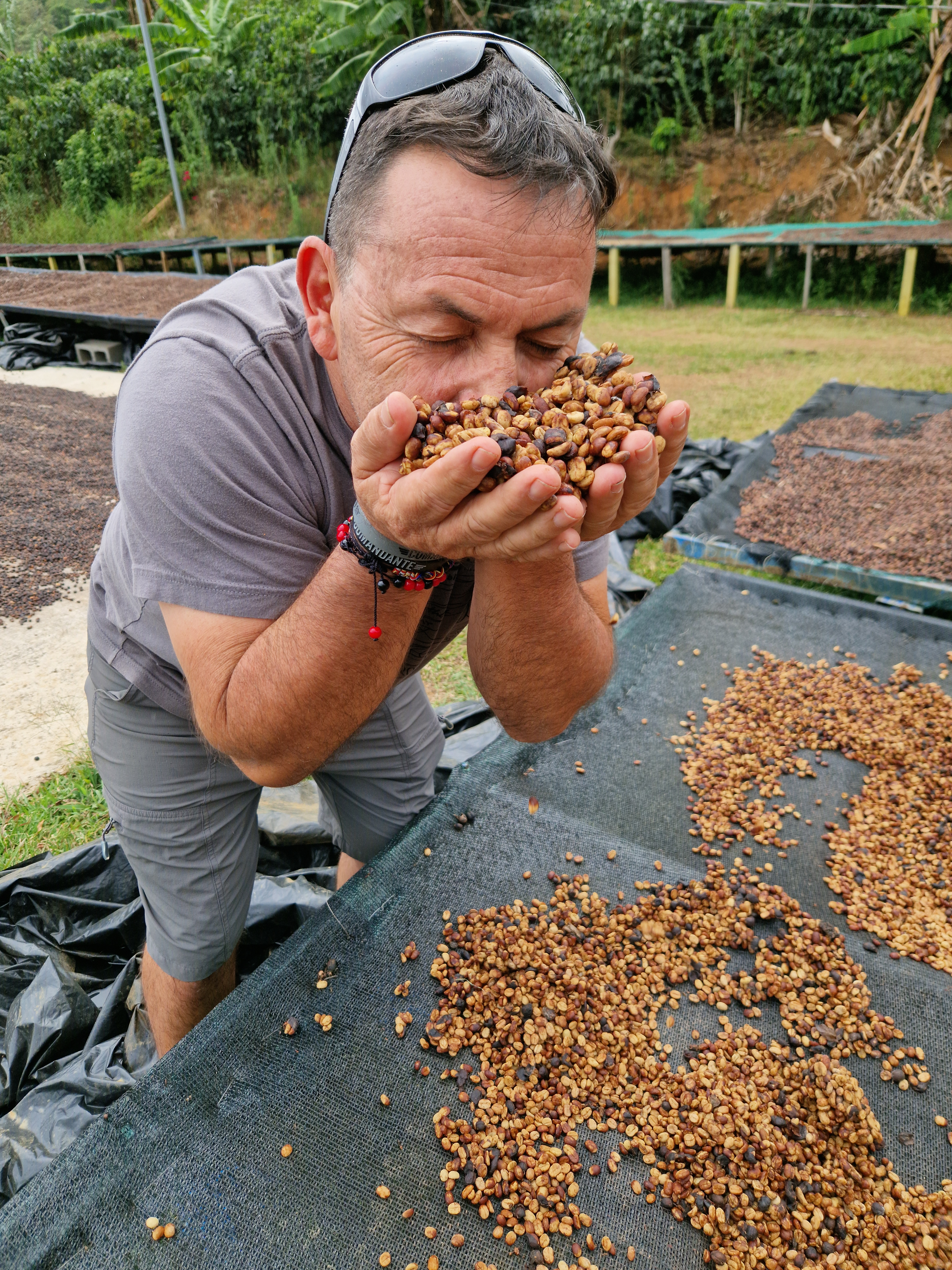
Luiz Anastasio Castro of Juanachute in Tarrazu, Costa Rica
________________________
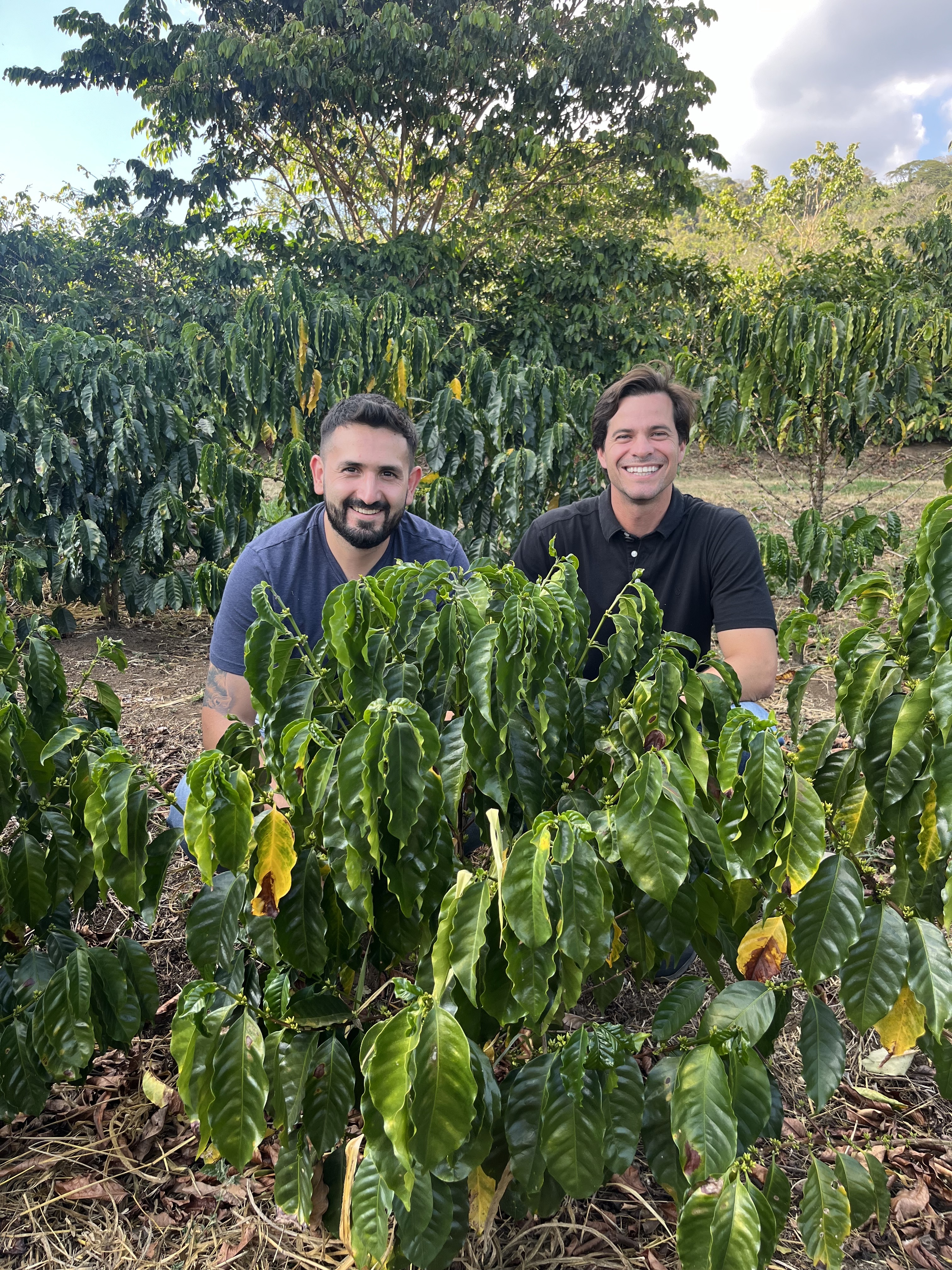
Central American Buyer, Abraham Castro Vindas (left) with producer Diego Guardia of Hacienda Sonora in Central Valley, Costa Rica.
Abraham Castro Vindas
Buyer, Central America
This year for Costa Rica has represented a great challenge since many of the factors that affect business were unfortunately against production. Some years it is the weather, the value of the currency and valuation against the US dollar, and the one that has become more frequent is labor, but this year the harvest was brought forward about a month than normal. In addition to this, the weather was rainy at the same time, which caused a lot of coffee to fall off the plant and complicated the drying of the coffee.
A slow demand is what is projected in the air and there is uncertainty that a lot of coffee will go unsold again. It is important to raise awareness that coffee production is going through difficult times and that today, more than ever, producers need the help of good business relationships. Despite the conditions, quality continues to be a fundamental factor in Costa Rican coffees.
________________________

